Sports Nutrition – Tips for fueling your workout

Hi There 🙂 Happy Wednesday! I hope you’re having a great day!
Looks like lots of you liked my PB Chocolate Chip Banana Bread! It’s pretty tasty.
I got an email yesterday asking why I post some recipes that aren’t healthy, and asking me about eating to fuel endurance workouts. If you’re familiar with my blog and have read my BIO, you know my food philosophy. I believe in practicing moderation. To me, there is no such thing as a good or bad food, but there is such a thing as a bad portion. I eat healthy, but never deprive myself of the foods I love. Probably 80% of my eating is healthy, and the rest is game for whatever I crave. As far as exercise goes, between taking care of a nine month old and getting my workouts in, I stay pretty active. I’ve ran a couple of marathons and still run… but my marathon days are over. My husband competes in Iron Man’s, so between my marathon experience and his training, I’m pretty familiar with how to fuel for endurance training.
Exercise is part of a healthy lifestyle. Whether your goal is health maintenance or training for an endurance event, fueling properly is key. It’s also important to recognize the difference between the two. Eating to fuel a daily power walk is different than eating to fuel a long distance runner or a triathlete. Factors to consider include the right balance of carbohydrates, protein, and fat, the right amount of vitamins and minerals, as well as the proper amount of fluids. Here are some tips for my endurance training readers.
Carbohydrates:
- Best fuel for working muscles
- It’s important to include carbs at all meals.
- Our muscles are fueled by carbohydrates for energy, it’s important to make our carb choices count by focusing on whole grains and produce.
- A serving of fruit or veggies is about the size of a baseball.
- A serving of whole grains is about the size of our fist (1 cup). A 1-cup serving of grains averages about 175-200 calories.
Protein:
- We need protein for muscle growth and for recovery (to repair muscle damage after exercise).
- Protein is needed to make red blood cells, which moves oxygen to muscles, and white blood cells, which help fight infection.
- Our body uses protein to make hormones and enzymes, which helps regulate our metabolism.
- Our maximum protein needs are only about 1 gram per pound body weight. This can easily be met with “real” food.
- Three ounces of lean meat provides about 21 grams of protein. Three ounces is about the size of a deck of cards.
- A good rule is to eat a portion of lean protein the size of the palm of your hand (at least 3 ounces) for lunch and dinner (breakfast if possible).
Fat:
- We need fat for energy
- Fat helps our body utilize some vitamins.
- Fat helps move substances in and out of cells, and it helps keep your brain and nervous system healthy.
- Fat provides a “satisfaction” factor at each meal.
- Try to include a serving of healthy fats with your meal. A serving is a tablespoon (about the size of your thumb).
- Healthy fats include: almonds, mixed nuts, peanuts, peanut butter, ground flax meal, walnuts, pumpkin seeds, avocados, canola oil, and olive oil.
Vitamins & Minerals:
- Help unlock the energy stored in food so your body can use it as fuel.
- Our body needs calcium, magnesium, fluoride, and vitamin D to keep bones strong.
- Include a serving of veggies (1 cup) at lunch and dinner… preferably dark leafy greens.
- Include a serving of fruit (1/2 cup) at breakfast and lunch.
- Make sure your veggies are not fried or swimming in butter.
- Take a daily multivitamin. This is a great insurance plan to ensure our bodies are getting the nutrients it needs.
Fluids:
- Water is the most important nutrient. If your body weight drops just 1% from losing fluids, your performance will suffer.
- Be sure to replace the fluids you lose through sweat when you are active.
- For high intensity or endurance workouts (90 minutes or longer) it is extremely important to replace your fluids.
- Weigh yourself prior to your workout.
- Hydrate during your workout as usual.
- Weigh yourself after your workout – make note of the number of pounds lost post workout. Consume 3 cups (24 ounces) of water or sports drink for every pound of body weight that your lost while you were active.
Sports Drinks:
Sports drinks such as Gatorade and Power-Ade are really only needed when you will be working out for 90 minutes or more. For daily exercise up to 1-hour, water is the best choice for hydration.
Always eat breakfast
Make it a point to eat a good breakfast every morning. This is extremely important for endurance athletes. The level of glycogen in our liver is lower in the morning. We need to refuel our body to replace the energy it used while we slept.
Before an Endurance Workout
3-4 hours before a workout, practice, or competition, eat a carb loaded meal such as rice, pasta, yogurt, fruit smoothie, fruit, breads, rolls, etc…
Eat Often
It’s extremely important to NEVER let yourself go hungry. If you’re training for a marathon or an Iron Man, your calorie intake will be very high. I know when my husband is in peak training mode, he’s taking in between 4000 & 5000 calories per day. Plan your meals and time them around your workouts for proper digestion.
For Morning Exercisers
If your workouts will be no longer than one hour, it’s not vital to eat something prior to our workout… unless you are STARVING from the night before. If you will be going for a long run, cycling, or any other activity that will be 90 minutes or more, fueling prior to exercise is key. Have an energy bar, granola bar, ½ bagel, large banana, etc… Consume at least 12ounces or more prior to your workout, and make sure you hydrated properly the day before.
~~~~~~~~~~~~~~~~~~~~~~~~~~~~~~~~~~~~~~~~~~~~~~~~~~~~~~~~~~~~~~~~~~~~~~~~~~~~~~~~~~~~~~~~~~~~
Question of the day: How do you fuel your workouts? What pre-workout meal works best for you?
If I workout out super early, like 5 or 6am, I don’t really eat anything because I’m not hungry. I do eat a good breakfast within an hour of finishing my workout. I don’t do endurance training anymore, but if I decide to go for a longer run (8-10 miles for me) I’ll make sure to eat some type of easily digested food like a balance bar a couple of hours before my run.
Resources: American Dietetic Association, Jon Vredenburg MBA,RD, CSSD

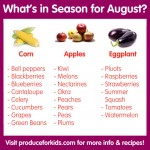
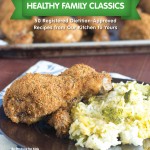
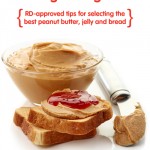
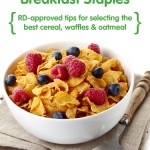
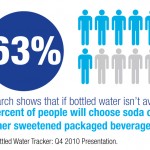
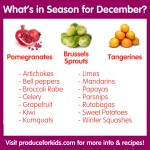
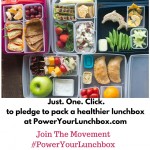

this is a great post!! i usually dont eat anything if i work out first thing in the morning, but i do like to have a pb sandwich before i go for a run in the afternoon or something!
I get woozy if I don’t eat before a morning work-out so I fuel up with half a Cliff Bar. It does the trick without being too much.
I still always eat in the mornings! Usually just something little, maybe 1/2 scoop protein, or 1/2 a bar, or banana w/pb, especially if I am lifting. I usually do cardio fasted, but if I’m lifting I’d rather get something in me than burn my muscle instead!
Great answer! Even those who eat healthy (cough, cough!) are not perfect. No one is perfect and everyone is allowed a splurge. Even I am still refraining (barely) from making that recipe, and not because it’s not 100% healthy, but because I know I wouldn’t be able to keep to a healthy portion. Like you said 🙂 I hate putting foods into “good” and “bad” categories…I’m with you 100%!
i usually eat my lunch about 1.5-2 hours before I workout, so that usually gets me through it! Afterwards I like to have a Larabar or an apple and PB and LOTS of water 🙂
I always love your advice so thank you for this post! With just starting bikram yoga, I have found out quickly how to get fluids in me and fuel for the morning class I attend. I found the Naked juices now have protein smoothies. This morning I had 1/4 of one with half of a banana and frozen raspberries blended together. It was easy to digest being a smoothie, added hydration besides my water and didn’t feel badly when I was practicing. A win-win all around I think!
This is a great post. I really need to eat something before my workouts in the morning. I also wait too long after my workouts to eat which I just read is not good! Thank you for the great advice!
GREAT answer…that actually makes me mad that people question what they consider “unhealthy” recpies. I TRY so hard to teach the concept that there are NO BAD FOODS and that everything (and yes I mean EVERYTHING) can be eaten in moderation! So kudos to you for posting recipes that you like!!! 🙂
Great info! I workout in the morning(and it is always under an hour) so I don’t eat anything prior to working out but do drink lots of water. And then I always eat bfast after!
I have a big problem with not fueling enough before workouts and then feeling really weak while working out. I have to make a point of working out after a meal – I am not one who can go right after work, because a protein bar, or something like that just doesn’t cut it for me.
agreed – the 80/20 thing seems to work out well for me too.
Great post! Tons of good information. I workout at 6am so I don’t eat before I work out. I drink a good amount of water right after. I am a huge believer in water consumption! There is nothing better for you!
I’m a big believer in properly refueling after exercise 🙂
I prefer to run in the morning but I always eat breakfast before otherwise I’m seriously dragging
If your work out is minimal, just about 2 miles run, do you still need to fuel and refuel?
By the way, I LOVE your health philosophy…it has such a perfect balance!
p.s. your title spells “sprots” tee hee.
I obviously don’t know how to spell anymore…
I’m aweful with typos… sorry guys 🙂
Good read. A simple doubt- what does sprot (title)mean !
Hmm.. It totally depends on the workout and what time of day it is. If I bike ride at 5:30 a.m. for 20-24 miles I won’t eat anything, but I may put something other than water in my water bottle. If I do a longer run at 7 or 8 a.m. I may have a coffee, toast & PB.
Yeah I agree on a few points, still great article.
I am going to refer my son to your site; he has been on a strict diet and is very interested by all the information that you give out.
Today’s pre-workout snack is a banana and a tablespoon of all natural peanut butter.
I think it’s a great because it incorporates protein and carbs with potassium from the banana.
GREAT tips.. when I “work out” its usually just long walks but I always always eat some veggies, nuts, and some fruit before I leave. If its more than like 5 miles, I bring some pretzels or crackers along
Love the tips. And what you said about moderation. Trust me, I get my fair share of comments re something not being raw, vegan, or whatever and it’s like people, use common sense and moderation! Oh, how I love that you remind people of this,too!
I don’t usually eat before morning workouts. Otherwise, I try to eat regular meals and a small snack like whole wheat crackers about an hour before a workout. I have a hard time finding the balance of not starving and not too full for a workout, so a Lara bar or something similar usually comes along with me just in case!
Great posts! I have bookmaked it so I can review it again… it comes in handy now that I am in training mode.
PS. I have moved… you can now find my blog @ http://www.nutritiousfoodie.com/